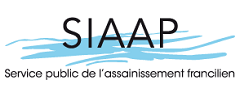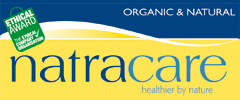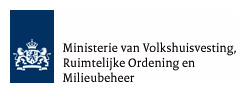Bugday
| Country: | Turkey |
| Issues: | tourism, food, agriculture |
| Home page: | www.bugday.org |
| Email: |
01.02.2008

| << | >> |
Organic Farm Stays in Turkey
These days dense sectors such as tourism, food and agriculture are undergoing a seemingly endless transformation towards providing for the increased demands of consumers on the one hand and towards increasing these very same demands on the other. While this transformation is assumed to benefit everyone, at this point in history, we see that this short term benefit is cumulatively biting the hand that feeds us, that is, harming the whole that we survive on. Moreover, faced with the grave reality of ecological, social and economic decline and as the bills we can't pay increase, our conscience is forced to adjust or transform itself. Indeed, our options, which at one time appeared many, have been reduced to two again: grabbing and fighting for another piece to have more before it is all gone; or living through transforming, that is, eternally transforming by producing and giving and thus being one with transformation.
To explain the Ekolojik TaTuTa (Ekolojik Tarım Turizmi ve Takası-Eco-Agro Tourism and Voluntary Exchange) Project it is useful to briefly introduce the practical collaborators and their contributions.
Nature is the biggest supporter of this project. With its endless contributions of air, water, soil, climates, habitats, plants, animals, different geographies, the whole balance of biodiversity, seeds and food, nature is the most important and essential sponsor of this project.
Farmers offer their labour, knowledge, traditions, homes, lands, neighbours, environments, food, friendship and time to this project. The main components of the project (the venue and conditions), are determined by the decisions and contributions of the volunteer host farm families.
The UN Development Program (UNDP) Global Environment Facility Small Grants Program (GEF-SGP), members of the Association and other benefactors give monetary support to TaTuTa as symbols of their belief and common hopes. They do this expecting nothing in return, wishing only to push the project a couple steps further.
Visitors that offer voluntary labour or information to the farmer family enrich the project with their valuable time, skills and knowledge. Financing their own transportation to the farms, they strive to enrich, ease and honour the life and ecological efforts of the farmer family.
By choosing TaTuTa from among so many available vacation possibilities, visitors that stay on the farms as Eco-AgroTourists give their contribution directly to the ecological host farm and share their culture, difference and friendship with the host family.
Although less obvious, the organic production/processing companies, merchants of these products, consultants, inspection/certification firms, government institutions and local authorities strengthen the spine of the project by offering their infrastructure (space, storage, vehicle, office, etc.), valuable knowledge, contacts and references.
Umbrella institutions of related international networks such as IFOAM, ECEAT and WWOOF expand the project to a global scale through their knowledge and experience at an international level, and most importantly by providing an indespensible forum for communication with similarly oriented organizations worldwide.
Non-governmental organizations, enterpreneurs and projects with similar objectives also facilitate this project by offering their facilities as well as their knowledge and experience about the topic.
In addition to offering its own existing knowledge, experience, volunteers and physical facilities, The Bugday Association for Supporting Ecological Living contributes to the healthy operation of the project by preparing it, providing communication between all the stakeholders, bearing all the project's mangement risks. By charging its volunteers, full-time and seasonal employees with monitoring, problem-solving and discerning faults, the Association and the TaTuTa project also provides these people with a learning opportunity, as it does for all of the project collaborators.
Keeping the contributions of all of the stakeholders in mind, What about what they get, what are the foreseen benefits?
The Bugday Association gains "success", "influence", "recognition"; other projects gain new partners or supporters; international institutions gain data, recognition and influence in the region.
Ecological traders gain advertisement, the opportunity to grow, more conscious consumers and support for their producers. Visitors gain valuable experience, knowledge, an inexpensive and familiar vacation, new friends and hope. Financial supporters gain satisfaction, prestige, hope, motivation, and the will to be more beneficial. Farmers gain information, labour support, new friends, new markets, recognition, social approval, and a source of supplementary income.
Ultimately, though, the biggest partner, nature, actually does not gain much if the project operates as planned; she is left to run her systems, cycles and components that keep `humanity` alive, just with less obstacles. That is, she loses less.
Still, from the human perspective, the project is a unique example of 'rural development' in that it aims to conserve biodiversity and air, water and soil quality; it supports the adoption of sustainable methods of production and consumption; and most importantly it contributes to the happy and hopeful continuity of rural lands and populations, who are invariably in contact with nature.
We all live for benefit. Social benefit, another's benefit, our own benefit. Systems that provide them all will be long term; those that prioritize either rural or urban will have conflict, and all sides will be harmed in the long run. Indeed, human history does not lack examples of the latter scenario but thirsts for examples of the former.

































